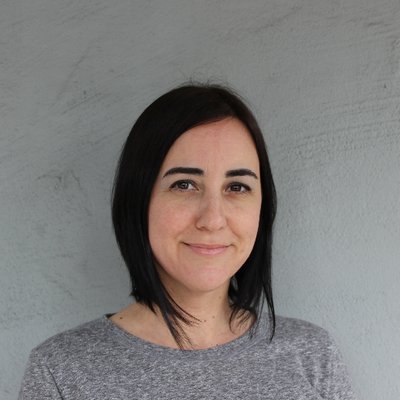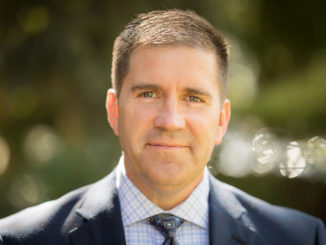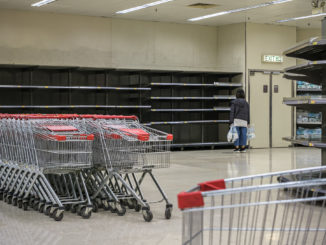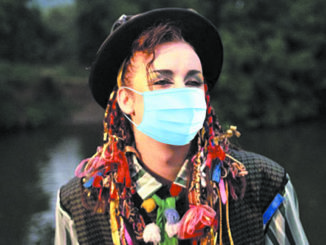
Those who’ve read my column or editorials in the CN&R over the years know that I’ve been a fierce defender of programs designed to help people who are struggling. I’ve written many times about perennially threatened programs such as the Affordable Care Act, Medicaid and food stamps. But these days I have a newfound appreciation for them.
(Side note: Remember when Rep. Doug LaMalfa said the private sector or churches—not the federal government—should be the ones helping hungry folks? But I digress.)
Call it vanity or ignorance if you’d like, but never did I think I’d be writing about such safety nets from the perspective of personally needing them. Yet here I am—stressed out but grateful.
After COVID-19 slashed the CN&R’s advertising revenues, halting print publication on March 19, I did what so many other now-jobless folks have done: file for unemployment insurance. My husband and the rest of the paper’s staff—more than 20 of us in the Chico office alone—lost their jobs that day, too.
Unfortunately, we’ve found ourselves in good company. We’re among the more than 26 million Americans who’ve filed for those benefits in the past six weeks. The unemployment rate is projected to reach a whopping 16.4 percent next month. It’s already far surpassed what was recorded during the 2008 financial crisis.
Indeed, what economists are seeing today is the highest unemployment rate since the Great Depression. That’s depression with a “D”—the economic turmoil many of us experienced only through reading The Grapes of Wrath or heard tales about from our grandparents or great-grandparents—not the aforementioned relatively recent downturn known as the Great Recession.
Speaking of John Steinbeck’s Pulitzer-winning novel, it’s a pretty familiar story to older generations of my father’s family. I’m actually a second-generation Californian on my paternal side. My dad’s parents came to the rural North State from Oklahoma during that period of desperation.
I’ve been fortunate to have never experienced that kind of poverty, but I am living in a situation in which I’m now reliant on the government to ensure basic needs. I realize I’ve been paying into the system my entire working life, but it’s still surreal.
It’s also been a little frustrating. It actually took more than a month to see anything come from that filing.
When I tried to contact the Employment Development Department to ask about the holdup, several weeks after filing a claim, I was hung up on after an automated message that basically said the agency was overwhelmed and couldn’t respond. After several instances of this fruitless, discouraging exercise—and after doing a little research—I tried going to Bank of America’s EDD department to inquire about the benefits debit card the company sends to those who qualify.
By this time, I was convinced someone had stolen the card and was out spending my claim money. Similarly overwhelmed, Bank of America was unreachable as well. I was disconnected again and again—until I wasn’t. One day, after being on hold on two cellphones—one of the calls extending for an hour and 20 minutes—I finally heard a human voice on the line I’d dialed last.
Long story short, the woman who helped me said a card would be sent out. It would arrive two weeks later, unless I paid $10 to have it shipped by Federal Express. I chose the latter to get it pronto. Sure enough, one month and one day after I filed my claim—and just few days after that conversation—I received the card.
My family was able to make it during that month without income, but I know not everyone is in that position. I worry about those folks.
Personally, I’m most anxious about the gap between the lapse of my work-subsidized health insurance and the pending transition to coverage through the state exchange starting in June. Here again, I’m grateful. I can’t imagine what I’d be dealing with had the GOP—including LaMalfa—successfully repealed the Affordable Care Act, as that party tried repeatedly to do since it became the law of the land.
My disabled son qualifies for Medi-Cal, but my spouse and I don’t. My husband was told that our unemployment benefits are too high. That’s hard to believe considering the maximum allowance is about $400 a week after taxes. Perhaps it’s the temporary additional federal unemployment benefit making us ineligible.
We’ve been exceedingly careful in terms of social distancing, but it’s scary to be uninsured during a pandemic. As of this writing, we’re trying to get an interim plan. June can’t come soon enough.
For years, I’ve heard people complain about government programs that help the needy. They grouse about the costs to taxpayers for such safety nets while ignoring the corporate welfare that aids only the very wealthy. I suspect a lot of those folks are in the position right now of needing a hand-up. Yet I wonder whether they’ll remember the help they received when this crisis is over.
I hope this situation is humbling. It sure has been for me.




It’s good to hear your strong, confident “writer’s voice” again, Melissa. The community needs you now more than ever.